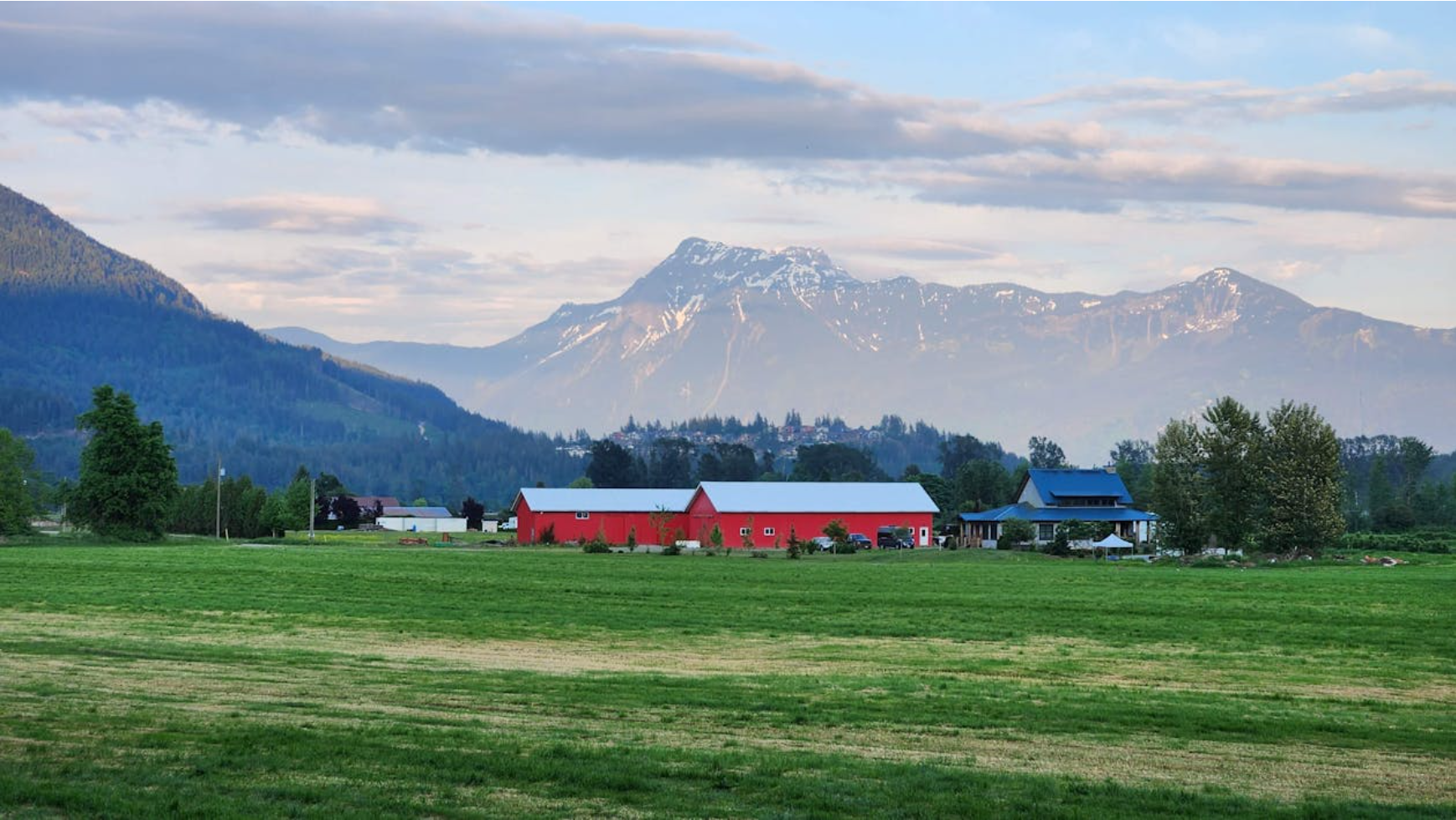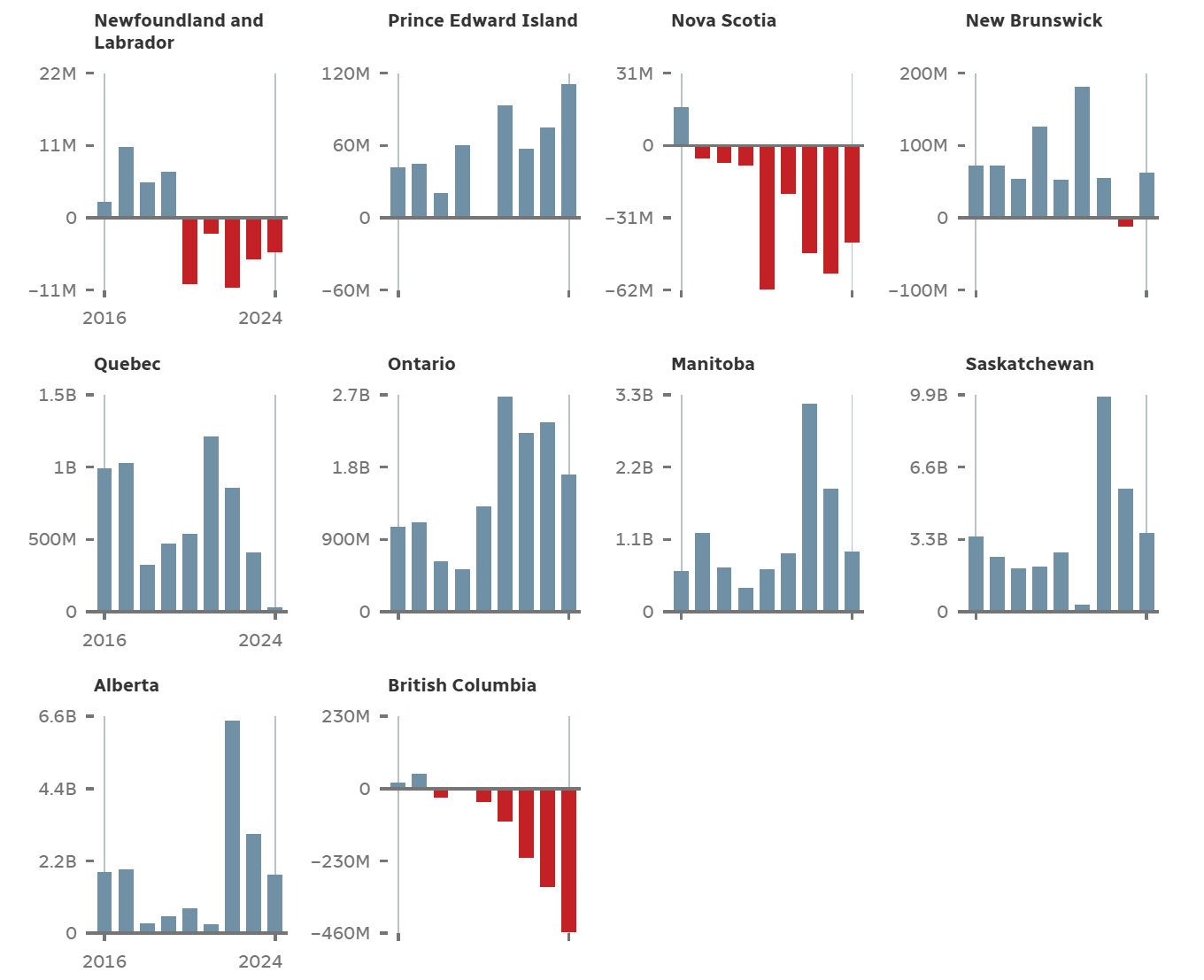BC farmers suffer largest net loss in entire country
In May, Statistics Canada released data that has shaken up BC’s agricultural sector, raising red flags about the future for BC farmers and agricultural workers.
According to this data, BC farmers had lost $456.9 million in 2024 in net farm income, by far the largest loss in comparison to farmers in other provinces.
In addition, BC farms haven’t been able to turn a profit since 2017, with 2020, the year of the global pandemic, setting a further trend of exponentially increasing losses.
“I have heard from farmers and producers about the challenges they have been dealing with, including high costs, climate impacts, intensified global competition, access to labour, and the potential impact of tariffs,” said Minister of Agriculture and Food Lana Popham in a statement.
This news has prompted the advocacy group BC Agriculture Council (BCAC) to ask the government to update its over 50-year-old Agriculture Land Reserve (ALR) policy, and increase compensation programs for those displaced by the climate crisis.
Words from the Council
(Courtesy of CBC/ Statistics Canada)
Paul Pryce, Director of Policy at the BCAC, talked to Coastal Front about how the ALR was set up with five percent of the total land mass in the province guaranteed in perpetuity for agriculture in 1973.
“Maybe only two-thirds of that five percent is actually used for agriculture, and the other remainder is not utilized currently,” Pryce said, explaining that when the land was reserved, some of the areas not included were actual prime locations for farming and vice versa. This has led to land that is intended for agricultural use to actually be used for other industrial projects.
Pryce also pointed out that the high cost of land, with its hefty price tag, is compounded by additional factors like the price of equipment and the high interest rates in Canada.
Pryce said the worst variables in the mix are the wildfires, floods, and heat domes that have proliferated as a result of climate change’s effects on BC. Severe damage to farmland will leave farmers in crippling debt as a result of the costs previously discussed.
“The 2021 floods loom large as a shadow over the industry. We had 1,100 farm properties that were affected by that and suffered millions of dollars in damages,” Pryce said. He also talked about how some crops can take years to grow back and cultivate normally again, putting further strain on the farmer’s way of living.
A Grim Future?
Minister Popham also presented a new Premier’s Task Force that is looking at pressing issues in the sector, including profitability and competitiveness, as well as climate adaptation tools and projects to protect farmers from extreme weather events. “We will continue working together on building a resilient and sustainable food system that is competitive and strengthens BC’s economy and food supply,” she stated.
According to figures provided to Coastal Front, $20 million of the funding for the Ministry of Agriculture and Food is set for emergency planning and preparedness, and another $20 million is dedicated solely to flood mitigation efforts in the Fraser Valley. The government also provides support through programs like Production Insurance and AgriStability, which help farmers navigate the risks for their farmsteads.
Pryce recommends that all BC farmers apply for crop insurance and then get affirmative access to programs like AgriStability, which can cover up to 70 to 80 percent of losses for the farm.
“[The data] really does paint a grim picture,” Pryce proclaimed, “but getting to know BC farmers and ranchers, I think there are a lot of passionate, creative people who can find some solutions to these problems and can kind of roll up their sleeves to get things done.”




